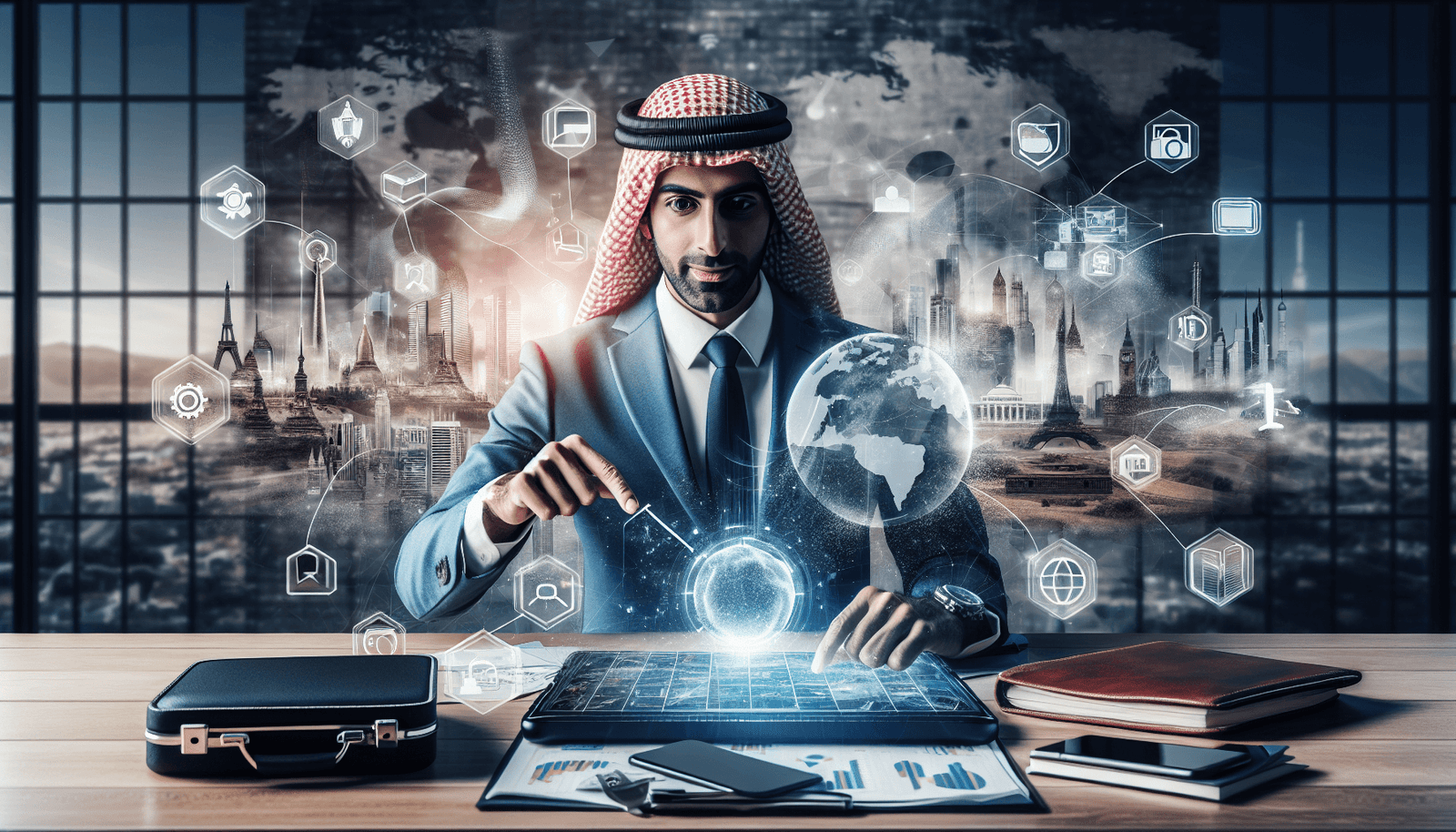In recent years, the travel and tourism industry has undergone a significant transformation, largely driven by the integration of artificial intelligence (AI) technologies. AI applications are enhancing the way travelers explore new destinations, offering personalized recommendations tailored to individual preferences and interests. From intelligent chatbots providing instant customer support to immersive virtual tours that allow users to experience destinations before booking, AI is reshaping the travel landscape. As we delve into this topic, we’ll uncover how these innovative technologies are revolutionizing tourism and creating more engaging and customized experiences for travelers.
Improved Travel Safety and Security
AI has significantly enhanced travel safety and security through various innovative technologies. One of the key advancements is in risk assessment and threat detection. AI-powered tools can efficiently discover potential threats at tourist destinations by focusing on robust security measures. For instance, automated facial recognition systems can accurately identify and verify passengers, reducing the risk of identity fraud and improving overall security at airports.
Fraud Detection and Prevention
AI-based machine learning algorithms play a crucial role in detecting fraudulent activities within the travel industry. These algorithms can analyze booking patterns and identify fraudulent transactions in real-time, protecting both travelers and tourism businesses. By leveraging predictive analytics, companies can identify potential fraudsters before they make bookings or claim insurance benefits, thereby safeguarding the integrity of the travel process.
Personalized Travel Recommendations
AI is revolutionizing the way travelers plan their trips by providing highly personalized recommendations. Using data science and machine learning, AI systems can analyze a traveler’s preferences, past behaviors, and current trends to offer tailored suggestions. For example, if a traveler searches for “hotels in Madrid,” AI-driven systems can provide recommendations for accommodations in the Madrid metropolitan area that match the traveler’s specific needs and preferences.
AI Travel Assistants
AI travel assistants are acting as virtual travel agents, helping travelers with every aspect of their trip planning. These assistants can book hotels, flights, and even add dates to the traveler’s calendar. They provide constant assistance, personalized suggestions, and answers to queries, making the booking process much more efficient and user-friendly. Companies like Expedia and Skyscanner are already leveraging these AI-powered chatbots to enhance the user experience.
Chatbots for Customer Support
Chatbots have become a staple in the travel industry, providing 24/7 customer support. These AI-powered chatbots can respond to questions, offer valuable information, and assist with bookings, even when human customer service representatives are not available. The global chatbot market is projected to reach $15.5 billion by 2028, highlighting the growing importance of these tools in customer service.
Predictive Analytics for Demand Forecasting
AI’s predictive analytics capabilities are crucial for demand forecasting in the travel industry. By analyzing vast amounts of data, AI systems can predict travel trends, helping businesses to allocate resources more efficiently. This not only enhances customer experiences but also allows companies to adapt to dynamic travel demands. For instance, the FAA uses advanced AI and data science algorithms to predict flight demand, enabling airlines to adjust their pricing and capacity accordingly.
Facial Recognition and Automated Check-ins
Facial recognition technology is another significant AI application in the travel industry. It simplifies check-ins, enhances security, and streamlines border control processes. Hotels and airports are increasingly adopting facial recognition systems to provide an effortless and secure experience for travelers. For example, the Henn-na Hotel in Nagasaki is fully staffed by multi-lingual robots that use facial recognition for check-in and check-out processes.
AI-Driven Applications for Flight Forecasting
AI is also used in flight price prediction, where advanced algorithms analyze historical price patterns to offer travelers the best time to book. Applications like Hopper use AI to predict future flight prices, allowing travelers to make informed decisions and airlines to adjust their pricing strategies in real-time. This optimization not only benefits travelers but also helps airlines and hotels to manage their pricing more effectively.
Personalized Travel Planning
AI’s ability to analyze large amounts of data enables it to hyper-personalize travel planning. AI systems can accumulate travel history, behaviors, and preferences of different types of travelers to plan itineraries that include the best travel options according to their needs. This level of personalization ensures that each traveler receives exactly what they are looking for, making their trip more enjoyable and hassle-free.
Virtual Tours and Immersive Experiences
Virtual tours are another innovative application of AI in tourism. These immersive experiences allow travelers to explore destinations before booking, providing a more informed decision-making process. AI-powered virtual tours can simulate real-world environments, giving travelers a firsthand look at what to expect from their trip. This technology is particularly useful for travelers who want to experience a destination without the physical constraints of travel.
Managing Travel Disruptions
AI is also used to forecast and manage travel disruptions. By analyzing historical data and real-time information, AI systems can predict the likelihood of flight delays, weather disruptions, and other issues that might affect travel. This predictive capability helps airlines and travel companies to prepare and respond to disruptions more effectively, minimizing the impact on travelers.
Voice-Based Digital Assistance
Voice-based digital assistance is an emerging trend in the travel industry. AI-powered voice assistants can be integrated into hotel rooms, allowing guests to ask questions or make requests and receive immediate responses. This technology also enables voice-activated room controls and instant access to tourist information, enhancing the overall guest experience.
Flexible Pricing and Revenue Management
AI’s ability to quickly organize and analyze data makes it an invaluable tool for dynamic pricing in the travel industry. By adjusting prices based on demand, availability, and other factors, AI helps businesses to optimize their revenue management strategies. This intelligent pricing ensures that companies can maximize their earnings during peak periods and maintain competitiveness during off-peak times.
AI for Customer Segmentation and Sentiment Analysis
AI is used in customer segmentation to deliver a better customer experience. Platforms like TravelPerk use AI to segment the market, allowing for more targeted and personalized services. Additionally, AI tools like Brand24 and PureStrategy’s Automated Neural Intelligence Engine (ANIE) track customer sentiment, providing valuable insights into customer preferences and feedback. This helps businesses to make data-driven decisions and improve their services accordingly.
Real-World Examples
Several leading travel brands are already reaping the benefits of AI-powered solutions. For instance, Expedia’s chatbot helps customers book hotels and flights, provides personalized suggestions, and answers queries, enriching the user experience. Marriott International has also leveraged AI to gain insights into guest needs and preferences, making significant improvements to their services based on this data.
Navigating Emerging AI Trends
The travel and tourism industry is witnessing a transformative wave with AI integration. Emerging trends include the use of virtual assistants, image recognition, robotics, blockchain for security, health and safety measures, and green travel initiatives. To navigate these trends, businesses need a strategic and holistic approach, focusing on understanding customer needs, embracing collaboration, and investing in data and analytics.
Conclusion
The integration of AI in the tourism industry has brought about a transformative change, offering numerous benefits for all stakeholders involved. From enhancing customer experiences to streamlining operations and driving revenue growth, AI has proven to be a game-changer. As the industry continues to evolve, it is clear that AI will remain a crucial component in shaping the future of travel and tourism.
As AI continues to advance, it’s exciting to think about the new innovations and improvements it will bring to the travel and tourism industry. For those looking to stay ahead of the curve, exploring AI solutions is a step in the right direction. Visit Neyrotex.com to learn more about how AI can transform your business.







